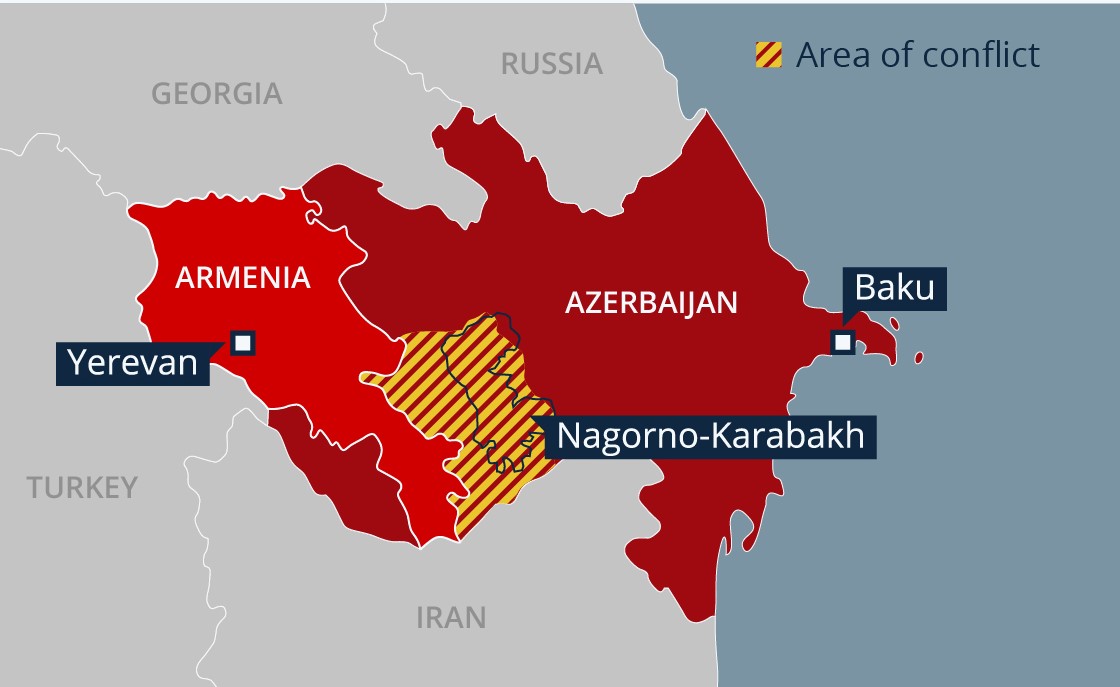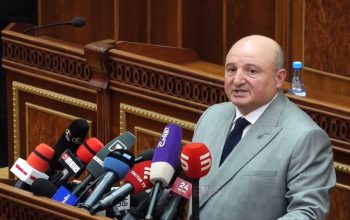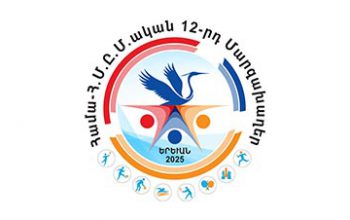Hoory Minoyan
EREVAN—A planned meeting between Armenian Prime Minister Nikol Pashinyan, Azerbaijani President Ilham Aliyev and European Council President Charles Michel has been canceled, the latest sign of the failure of the peace process between Armenia and Azerbaijan.
The breakdown of negotiations became evident when Aliyev refused to participate in European-brokered talks in Granada, Spain at the beginning of this month. Yet he sent Azerbaijan’s foreign minister to Iran for the “3+3” format talks, which took place on Monday, October 23. While another meeting was scheduled between Aliyev, Michel and Pashinyan at the end of October, European Union Special Representative for the South Caucasus Toivo Klaar confirmed today that the meeting will not take place. The Speaker of the Armenian Parliament Alen Simonyan stated that the meeting between Pashinyan and Aliyev was canceled due to Azerbaijan’s opposition to holding the meeting in Brussels.
The idea of a “new platform for regional cooperation to ensure lasting peace and stability,” or the “3+3” format, entails a regional mechanism for peace, where the stakeholders include Southern Caucasus countries Armenia, Azerbaijan and Georgia, and their more internationally influential neighbors Iran, Russia and Turkey. While Turkish President Recep Tayyip Erdogan first suggested a regional format following the ceasefire agreement ending the 2020 Artsakh War, this format was formally introduced in October 2021 by Russian Foreign Minister Sergey Lavrov.
The first round of talks in this format was held in Moscow in December 2021. While most countries were open to this format, Georgia declined from the start, citing the unsettled disputes with Russia over the breakaway territories of South Ossetia and Abkhazia and wary of upsetting the political alliance with the West. Georgia also refused to participate in the latest “3+3” talks on Monday.
After the “3+3” format meeting held in Tehran, the participating parties issued a nine-point joint statement:
Taking into account the importance of the development of relations between countries based on mutual interests and neighborliness, they emphasized the peaceful settlement of disputes, respect for sovereignty, political independence, territorial integrity, the inviolability of internationally recognized borders, non-interference in internal affairs, the prohibition of the threat or use of force and human rights based on all the principles of the United Nations Charter.
They discussed the most pressing issues in the region and emphasized the importance of platforms such as “3+3” to provide opportunities for constructive dialogue and establish mutually beneficial cooperation between the countries of the region. They stressed the positive impact of economic cooperation on strengthening mutual trust, the well-being of nations and the stability of the region. They also noted the importance of cultural cooperation, people-to-people contacts and joint projects in the fields of education, science, tourism, culture and sports.
The countries’ foreign ministers also discussed strengthening bilateral and multilateral consultations and cooperation to promote lasting peace and economic development and welcomed the ongoing processes aimed at the regulation and development of relations between all the countries of the region. Positively evaluating the results of this meeting, they reaffirmed that this platform is open for the equal participation of Georgia.
The Ministers of Foreign Affairs of Armenia, Azerbaijan, Turkey and Russia thanked the Iranian Foreign Minister for the positive reception and successful meeting. Russian Foreign Minister Lavrov announced that the next meeting will be held in Turkey in 2024, noting that periodic meetings of the “3+3” regional platform can expand and strengthen the environment of trust and cooperation in the region.
High-ranking officials who participated in Monday’s meeting have made several announcements post-factum. Iranian Foreign Minister Hossein Amir Abdollahyan stated that the meeting can create a basis for peace with the participation of regional actors and neighbors in the South Caucasus. Turkey’s Foreign Minister Hakan Fidan said Ankara hoped the talks would “give impetus to normalization and peace processes.”
While some believe that these talks represent progress in the normalization of relationships between Armenia and Azerbaijan, the most important factor for regional stability is lacking. Political analyst Ruben Mehrabyan says that Armenia considers the “3+3” a consultative platform and is not foreseen to discuss the conflict. “Armenia does not consider this platform functional to any extent until peace is established in the region, and peace will not be established on this platform at all,” he said.
According to Mehrabyan, the “3+3” platform implies more risks than benefits for Armenia. This platform is focused on solving the problems of the region through the leadership of Iran, Russia, and Turkey, without the West. Mehrabyan believes that without the participation of Georgia, any agreement within the format is between Ankara, Moscow, Tehran and Baku. “Azerbaijan has done everything to turn this meeting in Tehran into a factor that would allow Baku to avoid traveling to Brussels,” Mehrabyan added, which was confirmed today.
In an interview with ABC Media, political analyst Tevan Poghosyan said that Aliyev will not sign a peace agreement after the signing of the ceasefire on November 9, 2020. Poghosyan added that Aliyev will not participate in any format that is not in favor of his interests. “He received all of the demands he had from Europe and now seeks a greater strategic advance through other formats,” Poghosyan said.





